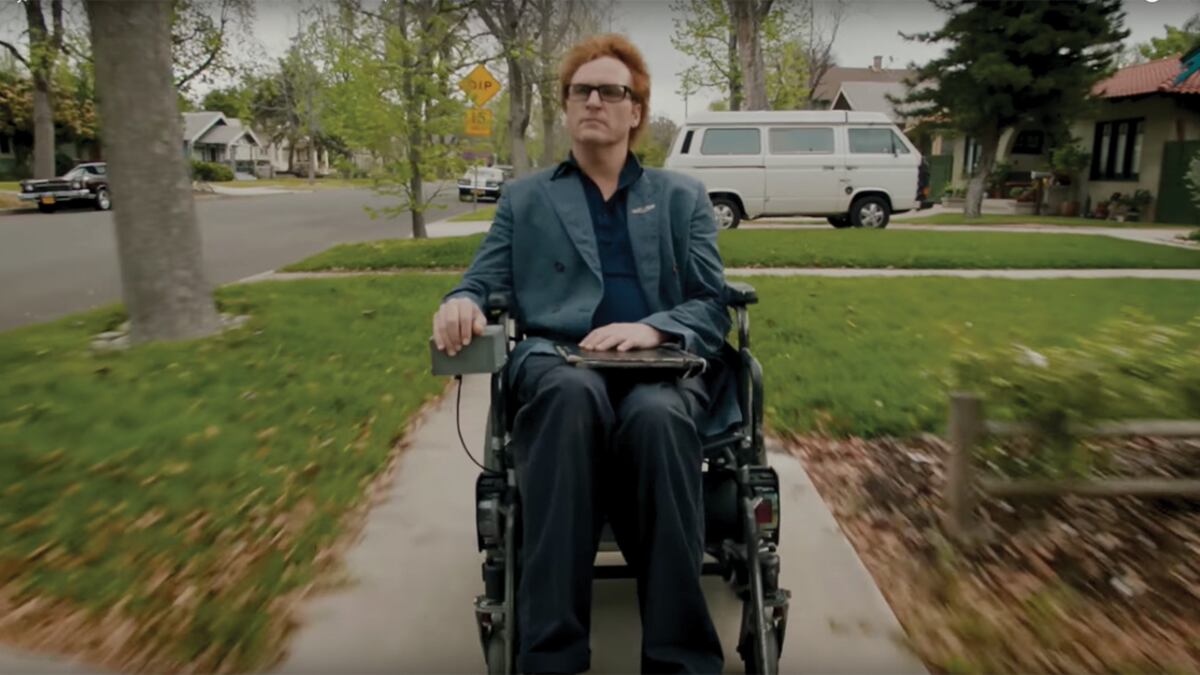Alot of actors have wanted to play John Callahan over the years.
The first was William Hurt, who optioned the rights to Callahan's autobiography, Don't Worry, He Won't Get Far on Foot, with the intent of turning it into a play before the book was even published. After that fell through, Robin Williams picked up the rights, and spent the next decade-plus waiting in vain for a movie to materialize. In between, Billy Crystal and John Ritter also expressed interest in playing the late cartoonist.
Eventually, the role fell to Joaquin Phoenix. But unlike other actors who had coveted the part in the past, Phoenix had never heard of John Callahan before Gus Van Sant came calling.
WW spoke briefly to the famously chameleonlike performer about what drew him to Callahan, the minor controversy that followed his casting, and the Callahan cartoon that made him laugh the most.
WW: You weren't familiar with John Callahan before being asked to portray him. How did Gus Van Sant pitch the role to you?
Joaquin Phoenix: He just gave me the book. John is so funny and honest that you immediately see the power of this story and his journey and his transformation. I don't think it required much more than that. I think part of what meant a lot to me was that John wanted Gus to direct a movie about his life, based on his book. That means a lot.
What ended up drawing you to John as a character?
I love people who pursue their passion against all odds. There's a little bit in the film when he talks about his greatest moment, when he says the intellectual clutter of the day subsides, and he becomes almost primal, almost animalistic in his work. I love the idea of somebody unleashing their creativity.
How much freedom did Gus give you to interpret John? Did you feel pressure to nail his mannerisms exactly?
You're just looking for what's the motivation for the mannerisms. I watched these videos [of John], and he's constantly adjusting himself. I wanted to know why. I went to Rancho Los Amigos, which is the rehabilitation center where he was, over the course of a month. I was talking to the head of physical therapy, and I asked, "Why he's moving like that?" And they said, "He's in pain." And I thought he had no feeling from the diaphragm down. They said, "There's still pain, you just can't identify where it's coming from. The body still fires off these signals to the brain."
Some disability groups were upset an able-bodied person was cast in this role.
I like that people have a voice and are expressing their concerns, and I think it's something that oftentimes isn't considered. It didn't seem, in some ways, that it applied to this, because he was able-bodied for part of his life, and part of that life is in this film. Also, John knew this movie was being made; he wanted it to be made for years and wanted Robin Williams to play him. I think that's valid, also—the subject of the film, how they feel about it.
What's your favorite of John's cartoons?
There's one about a jumper, someone who's committed suicide. They're lying on the sidewalk, they've just landed, and a man is passing by who's an efficiency expert. He says something like, "If you had jumped from the seventh floor instead of the 12th floor, you could've accomplished the same thing in 3.1 seconds less." I think it really says something about empathy. It's about how people go through their lives and never stop to acknowledge the suffering others are in. He had such a brilliant way of doing that with all his cartoons.
How do you think his work would be taken today if he was still around and working?
I'm not sure, because there is a greater sensitivity in some ways. But I also feel like he might've done all right, because there are a lot of people who are just saying what they feel right now. One of the things he said was, "The only thing I can't stand is indifference. You can love my work or hate it, I don't care, but I just want a reaction. I want people to feel something." So I imagine if he was living today, he'd be getting a reaction, maybe even more so—and he would've fucking loved it.

